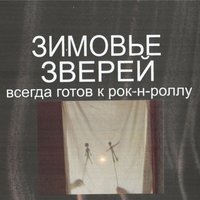| Сказки нашего двора (original) | Сказки нашего двора (translation) |
|---|---|
| Во дворах послевоенных, в тех несказочных дворах, | In the courtyards of the post-war, in those fabulous courtyards, |
| Где среди военнопленных промышляла детвора, | Where children hunted among prisoners of war, |
| Где вкуснее карамели каша с хреном пополам, | Where is tastier than caramel porridge with horseradish in half, |
| Мы несказочно взрослели не по дням, а по делам. | We unbelievably grew up not by the day, but by deeds. |
| Из недетской сказки нашего двора | From a non-childish fairy tale of our yard |
| Выходили столяры, профессора. | Joiners, professors came out. |
| Кто-то вышел в офицеры, кто-то в пасечники. | Someone became an officer, someone became a beekeeper. |
| И совсем-совсем немногие — в сказочники. | And very, very few are storytellers. |
| Во дворах шестидесятых, где весенние ветра | In the courtyards of the sixties, where the spring winds |
| Спать ребятам и девчатам не давали до утра, | The boys and girls were not allowed to sleep until the morning, |
| Где нечесаные дали, стадионы и мосты, | Where unkempt distances, stadiums and bridges, |
| Мы несказочно врастали в эти взрослые мечты. | We unbelievably grew into these adult dreams. |
| Из весенней сказки нашего двора, | From the spring fairy tale of our yard, |
| Где идеи выдавались на гора, | Where ideas were given out on the mountain, |
| Кто-то вышел в дипломаты, кто-то в истопники. | Someone became a diplomat, someone became a stoker. |
| И совсем-совсем немногие — в сказочники. | And very, very few are storytellers. |
| В перестроенных кварталах перестроечных дворов, | In the rebuilt quarters of perestroika yards, |
| Где так часто не хватало доброты и докторов, | Where so often there was a lack of kindness and doctors, |
| Где свободы воздух вязок и указы — не указ, | Where freedom is viscous air and decrees are not decrees, |
| Всем нам стало не до сказок или сказкам не до нас. | All of us were not up to fairy tales or fairy tales were not up to us. |
| Из последней сказки нашего двора, | From the last fairy tale of our yard, |
| Где шумел камыш, шуршала мишура, | Where the reeds rustled, the tinsel rustled, |
| Кто-то выбился в торговцы, кто-то в поставщики. | Someone became a merchant, someone became a supplier. |
| И совсем-совсем немногие — в сказочники. | And very, very few are storytellers. |
| Эти сказки мы всю жизнь в себе несем | We carry these fairy tales in ourselves all our lives |
| Сказки нам нужны всегда, везде, во всем, | We need fairy tales always, everywhere, in everything, |
| А без них мы как без времени временщики… | And without them, we are like temporary workers without time... |
| Потому-то нам всего важнее сказочники. | That is why storytellers are most important to us. |
Translation of the song lyrics Сказки нашего двора - Зимовье зверей

Song information On this page you can read the lyrics of the song Сказки нашего двора , by -Зимовье зверей
Song from the album: Всегда готов к рок-н-роллу
In the genre:Русский рок
Release date:15.04.2013
Song language:Russian language
Record label:Бомба Питер
Select which language to translate into:
Write what you think about the lyrics!
Other songs by the artist:
| Name | Year |
|---|---|
| 2013 | |
| 2013 | |
| 2013 | |
| 2013 | |
| 2013 | |
| 2006 | |
| 2013 | |
| 2013 | |
| 2013 | |
| 2013 | |
| 2013 | |
| 2013 | |
| 2013 | |
| 2006 | |
| 2013 | |
| 2013 | |
| 2013 | |
| 2013 | |
| 2018 | |
| 2013 |